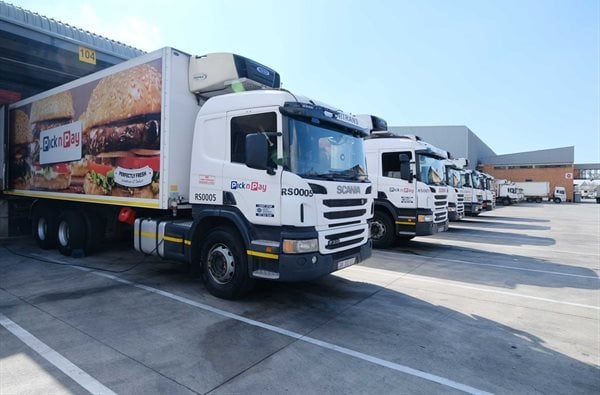The Covid-19 pandemic, and particularly the recent civil unrest, brought to light the indispensable role that businesses in the food retail chain play in keeping the nation fed and its wheels turning.

Gareth Ackerman, Pick n Pay chairman. Source: Pick n Pay
Speaking during the Franchising for Africa conference, Pick n Pay chairman Gareth Ackerman explained the central function that food retailers and the broader consumer goods industry occupied during this time.
“What’s been pretty clear during Covid and over this period [of unrest], and which government has finally realised, is that the food industry is effectively what keeps the country going. Without supermarkets, without stores, without restaurants, the country can’t feed itself. We are a vital chain, and for so many years we’ve been largely ignored by government and seen as just businesses on the side,” he said.
Getting food to communities
After days of riots had gripped pockets of South Africa in July, KwaZulu-Natal in particular faced the threat of food insecurity and hunger began to bite as looted stores stood empty, others closed as a precautionary measure and those that were open suffered stock shortages due to supply chain interruptions.
Key road closures gravely affected the movement of goods across the country. Ackerman explained that when the N3 eventually opened, snipers launched targeted attacks on trucks until the army intervened.
“The real challenge became 'how do we get food into those communities?' We sent many hundreds of trucks down to KZN over those days, and all our competitors did the same. Otherwise, I believe we would have had a huge explosion in those areas. I think the looting we saw would have been minor in comparison.”
Images of trucks filled to the brim with food supplies from SA’s retailers and manufacturers spilled onto social media and brought a sense of hope to weary South Africans, highlighting the industry’s important role in enabling broad access to food and essential goods.

Pick n Pay trucks prepare to leave Gauteng to provide relief in KZN. Source: Pick n Pay
Ackerman explained that the unrest and the resultant threat of food insecurity triggered a long-overdue recognition within government for the food retail industry.
“I think that the government for the first time realised that food security in South Africa is absolutely critical for long-term stability … We’re just now being seen as playing a key role, and the interactions we’ve been having with many government ministers the last couple of months around keeping the country going and keeping people fed, has been heartwarming, and also essential to the security of the country.”
SA’s largest employer
Commenting on stimulating business activity and speeding up economic recovery, Ackerman said that regulations need to be amended to free up the economy, and that franchising can be a vehicle for positive intervention.
Ackerman was responsible for getting Pick n Pay’s supermarket franchising up and running in the early 90s when grocery retail franchising was still in its infancy in SA. “Any businesses that can create jobs are good. Government needs to identify which sectors can create jobs and free up those sectors of the economy.”
With South Africa's unemployment rate now at a record 34.4%, he noted that the country's collective food retail industry – including corporate and franchise retailers, as well as manufacturers – is the largest employer in the country. “We create jobs more than any other industry. Many industries are getting more efficient and are cutting back jobs, but we still need front-end facing people who are servicing customers.”
Ackerman also pointed out that the retail industry is a notable provider of entry-level jobs suitable for the previously unskilled. “People who are just moving into the economy can move into retail, fast food and other franchise-aligned industries relatively easily. That’s how you’re going to get this country to work.”
Strength in collective
Also a speaker at the conference was Tony da Fonseca, CEO of the OBC Group and a former chairman at the Franchising Association of South Africa, which hosted the event. Da Fonseca expanded on Ackerman’s sentiments around job creation, saying that “despite any political and ideological differences, there must be one common goal: we need to create jobs.”
He emphasised the need for a collaborative approach towards economic recovery, saying that businesses need to work closely with government, trade associations, and local communities. “Our economy and country is in a state where we need to collaborate within the industry and across sectors. A collective is stronger than the individual. In a trading environment we may compete with each other, but that makes us competitors, not enemies,” he said.
Da Fonseca is a staunch supporter of the franchising business model, which has a proven track record in robust job creation and resilience even during turbulent times.
Commenting on how the model could economic growth and develop entrepreneurs, he said, “Franchising done right can really be a tool to empower people, and create independent entrepreneurs who are in business for themselves under the guidance of an established brand and protocols. And of course, it creates jobs for our communities.”
He added, “It's been a tough year. We need to keep franchisees and stakeholders positive in a time when it's easy to focus on the chaos and not the opportunities.”






































